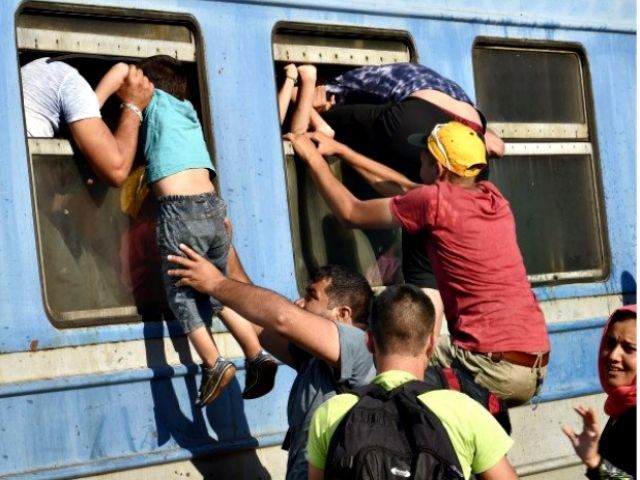As Greece struggles to regain some economic strength as it continues to negotiate a solution to its debt crisis with the European Union, the flood of refugees from Syria, Afghanistan, and other ravaged areas east of the Hellenic republic has continued unabated, threatening an economy that has for years been on the brink of disaster.
The Guardian reports that Greece has received 408% more migrants in the first six months of 2015 than it did in the same time frame in 2014. That means refugees in the tens of thousands, most flooding Greek islands near Turkey, from which they tend to sail. The islands of Kos and Lesbos have been hardest hit, threatening the security of Greece’s tourism industry. At their peak, 50,000 tourists a day were canceling vacations to the Greek Isles, a devastating number. The situation has troubled the industry so much that Greek politicians are trying to spin the migrant crisis as a good thing for tourists.
“Tourists know where they are going. In fact, tourists head to where there are oddities. They go to India, where children die on the streets; I haven’t seen the tourism flow to India stopping because of that; they go to Egypt where people sleep in cemeteries,” said Deputy Immigration Minister Tasia Christodoulopoulou, calling the migrants a “tourist attraction.” It appears few tourists agree.
Greeks themselves have expressed little positive sentiment towards the migrants — 79,338 of them in 2015 alone, according to the Washington Post. The Post cites a Gallup poll that found that, between 2012-2014, Greeks were the people on earth most likely to call for a diminished immigration flow into the country. 84% of Greeks answered they would like to see fewer immigrants enter their country.
The crisis has not been limited to Greek islands, however. Kathimerini, a center-right Greek newspaper, reports that up to 43 families, mostly Syrian, are living in Athens’ Pediou tou Areos Park, in the heart of the city. Half of those living in the park — 103 people — are children.
The European Union’s research indicates this nightmare for Greece may be far from over, as refugees attempt to redesign their paths across Europe to reach wealthier parts of the EU, but they may be trapped by new resources set in place to keep them from leaving Greece. While Frontex, the European Union’s coordinating body for national border guards, notes that there has been a drop in the number of refugees trying to cross into the EU by sea, instead attempting to cross through Macedonia and Serbia, these governments have noticed. Macedonia has significantly boosted its border patrol; Hungary is building a complete wall across the border. With other countries boxing the refugees in, they will all remain trapped in Greece.

COMMENTS
Please let us know if you're having issues with commenting.